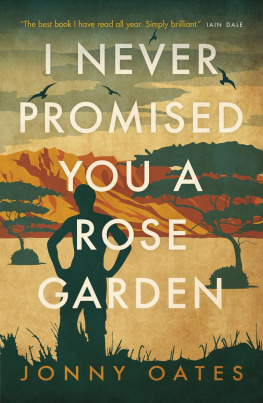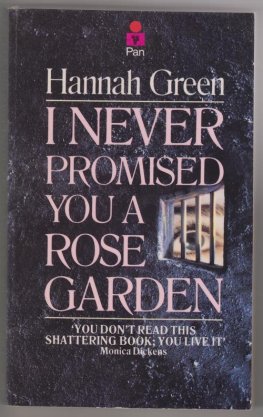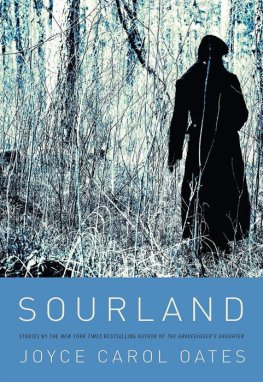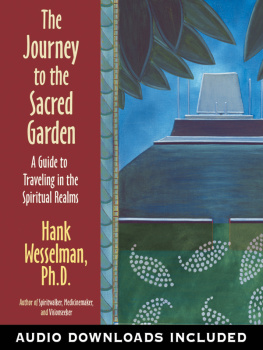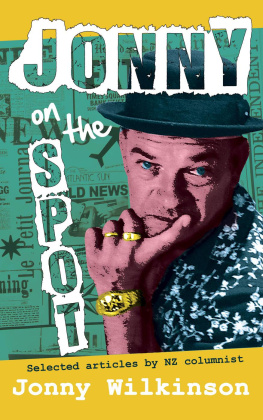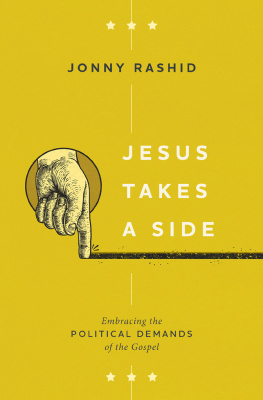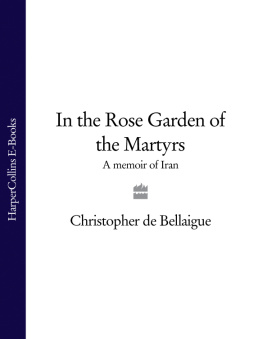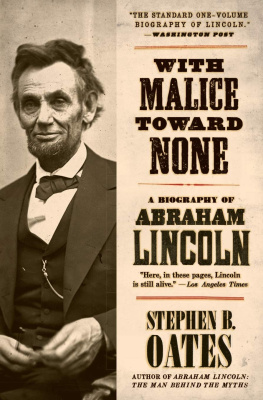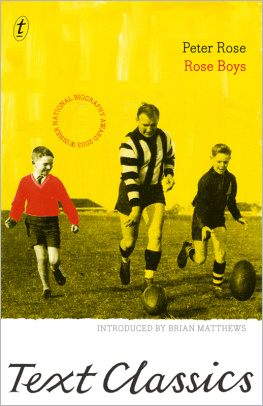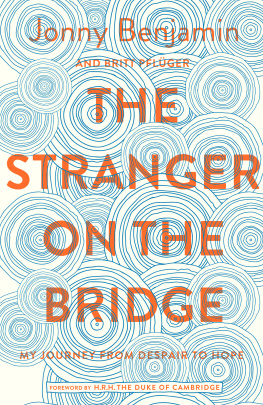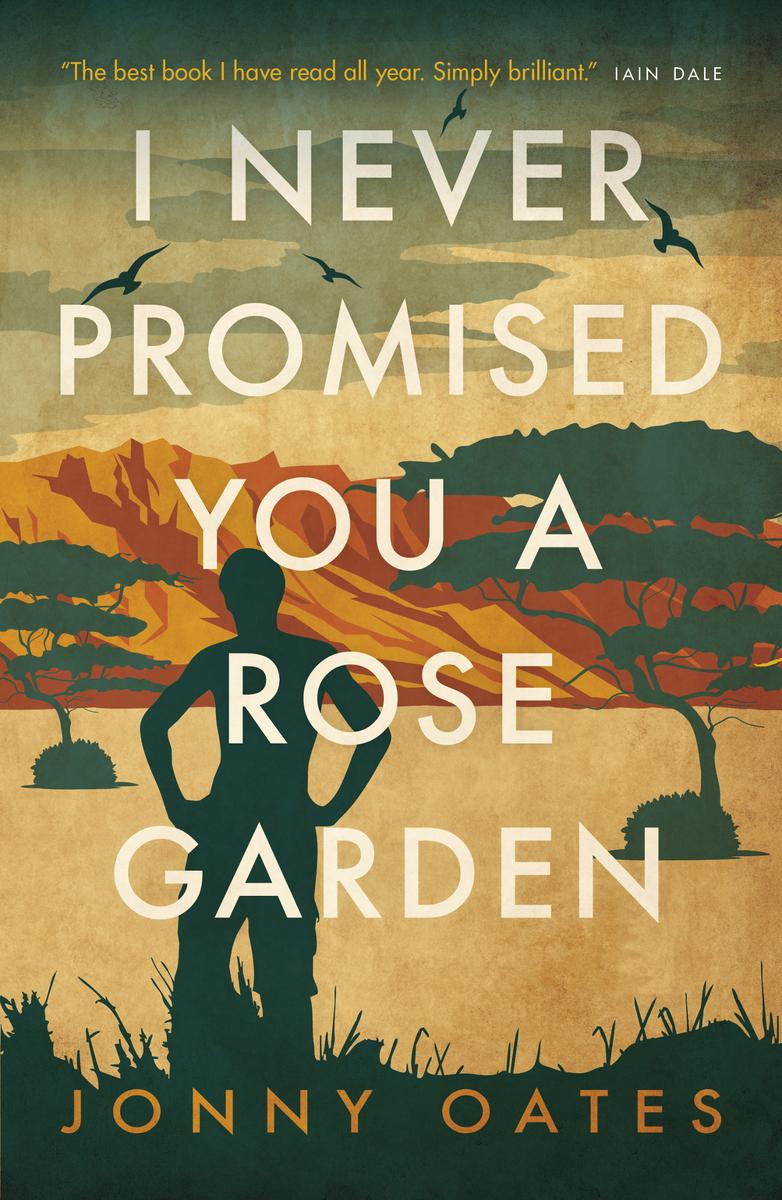The best book I have read all year. Simply brilliant.
Oates takes you on an extraordinary journey from teenage rebellion, through the fight for African rights, to the top ranks of the British government. Its all the more extraordinary because the story is true his is a life lesson that serendipity and courage can change things for good.
Unusually for a political figure, Jonny Oates has written about love: how it tormented him and how it healed him. Few in political life are as candid about the underpinning of what drives them. A gripping tale of escape and rescue, this is the story of the making of a liberal soul.
I Never Promised You a Rose Garden charts the unusual emotional and political journey of Jonny Oates. By turns tender, moving and funny, it is an unflinchingly candid story of teenage rebellion, of love and above all of heartfelt compassion. If anyone doubts that there is still a place in politics for exceptional, decent people, this is a book for you.
T his is the story of a journey which began in Addis Ababa during the famine of 1985 and ended in the Rose Garden of 10 Downing Street, twenty-five years later.
It is not a political autobiography if you are looking for the history of the coalition government, you will have to look elsewhere. It isnt my life story either there are too many important people missing from it and too many of my mistakes untold for that.
It is, rather, a journey through geographies and politics and emotions. A story about some of the things that happened to me on the way and of some of the people who helped ensure that I kept marching on.
The journey starts with a messed up fifteen-year-old boy embarking on the futile exercise of trying to run away from himself. That boy is me, but I found that to write about myself at that particular moment in my life with the degree of honesty that I wanted to, I needed to take a step back and view things through a more distant lens. Accordingly, I have written the opening chapters of the book, until I was found and rescued by Father Charles Sherlock, largely in the third person.
Many of the place names in Africa have changed since I lived there, so wherever possible I have used both the name as it was at the time and the modern name in current use. In the acknowledgements, I have referred to Prince Buthelezi by his royal title; however, during his time as x Home Affairs Minister, which coincided with my time in South Africa, Prince Buthelezi did not use his royal title, so I have generally followed this practice in the main text of the book.
The events retold here are as accurate as I can make them. They are drawn from a combination of my recollections, my diaries and the letters that I wrote home from Africa at different points over three decades, all of which my mother had preserved. Wherever possible, I have checked my recollections against outside sources and with others who were present at the time. The conversations that I record in the book are reconstructions from recollections sometimes dating back thirty years; they should not be regarded as verbatim records.
Finally, although all the facts are to the best of my knowledge accurate, I have changed the names of some individuals in order to avoid causing unnecessary embarrassment.
xi
BBC News, Tuesday 23 October 1984
Dawn, and as the sun breaks through the piercing chill of night on the plain outside Korem, it lights up a biblical famine, now, in the twentieth century. This place, say workers here, is the closest thing to hell on earth.
Thousands of wasted people are coming here for help. Many find only death. They flood in every day from villages hundreds of miles away, dulled by hunger, driven beyond the point of desperation.
Fifteen thousand children here now; suffering, confused, lost. Death is all around; a child or an adult dies every twenty minutes. Korem, an insignificant town, has become a place of grief.
The relief agencies do what they can. Save the Children Fund are caring for more than seven thousand babies. Every day they weigh them on a sling then compare their weight with their height. By this rule of thumb, one in three is severely malnourished, starved to the point of death.
Theres not enough food for half these people. Rumours of a shipment can set off panic. As on most days, the rumours were false; for many here there would be no food again today.
Two months ago, there were ten thousand people here; now the latest harvest has failed, there are forty thousand. Theres nothing like enough food in the country; not enough transport to move it if there was.
Some of the very worst are packed into big sheds, seven thousand now, most apparently dying of malnutrition, pneumonia and the diseases that prey on the starving. xii
This three-year-old girl was beyond any help: unable to take food, attached to a drip but too late; the drip was taken away. Only minutes later, while we were filming, she died. Her mother had lost all her four children and her husband.
Those who die in the night are brought at dawn to be laid out on the edge of the plain.
Dozens of them; men, women and children, under blankets or bound in sack cloth for burial in the local custom.
This mother and the baby she bore two months ago wrapped together in death.
As body after body was brought down, the grief became almost tangible. By Korems standards it wasnt a bad night; thirty-seven dead. Tomorrow there would be more; the day after, more still.
A tragedy, bigger than anybody seems to realise, getting worse every day.
Ethiopia is turning into the worst human disaster for a decade. A disaster begun by nature but compounded by man.
This is Michael Buerk for the Six OClock News in Korem, northern Ethiopia.
I was fourteen years old when I decided to run away to Ethiopia. Fifteen by the summer of 1985, when I actually made it to the Ethiopian capital, Addis Ababa. Why did I go? To save the world at least thats what I told myself but perhaps more prosaically and less originally, I was just running away from myself.
Twenty-eight years later. I am on an Ethiopian Airlines flight heading from Maputo in Mozambique to Addis Ababa. I am sat by the window in seat 2L. Next to me in seat 2J is the UKs Deputy Prime Minister, Nick Clegg. Its a very different flight from the last one I took to Ethiopia. Thirty thousand feet below me, the sun is setting over Africa and the darkness is gathering.
I try to imagine myself as that fifteen-year-old boy who sat on a different Ethiopian Airlines plane all those years ago, and I dont know if I should admire him or fear him. I do recall a few things from that original flight: the music channel stuck to country and western and Lynn Anderson percolating through plastic stethoscope-style earphones with the stark message I never promised you a rose garden.
I remember excitement as well as fear my first glimpse of Africa as the plane descended through the dawn. I remember seeing the straw-thatched huts dotting the rural expanse, and the beauty of the light on the land. I remember the sense of anticipation that I felt as an almost physical thing, a concrete experience that I can take out and examine.

